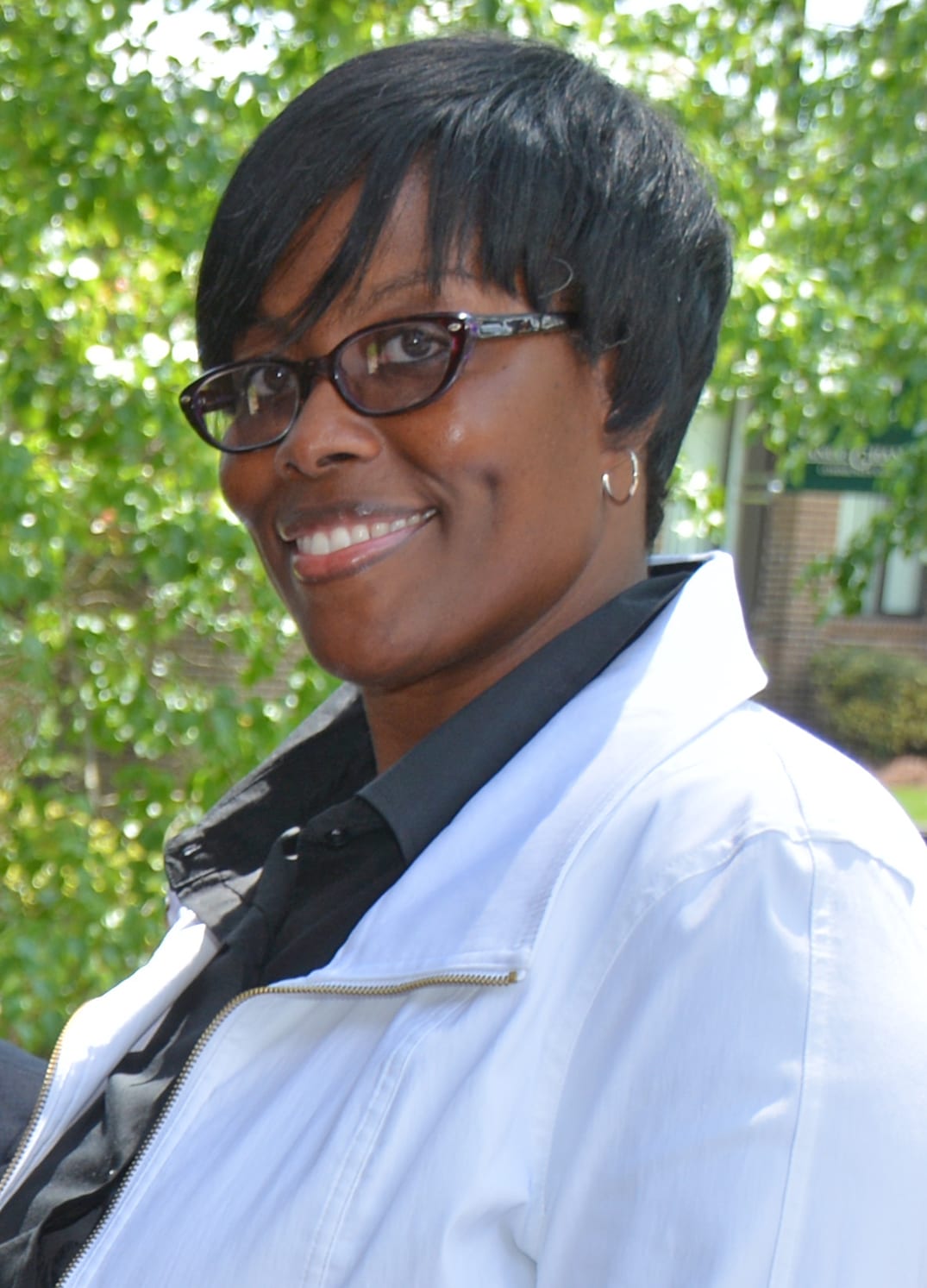News 01/10/20
100.1 FM / 1450 AM WIZS; Local News broadcasts M-F 8am, 12pm, 5pm
100.1 FM / 1450 AM WIZS; Local News broadcasts M-F 8am, 12pm, 5pm
THIS STORY IS PRESENTED IN PART BY DRAKE DENTISTRY
In a follow-up on the Henderson City Council’s Public Safety Committee meeting held Wednesday afternoon, City Manager Frank Frazier and Henderson Fire Chief Steve Cordell provided WIZS News with more details on the City’s recently completed fire study.
Henderson is currently served by two fire stations located approximately one mile apart: Station #1 at 211 Dabney Drive and the over 100-year-old historic Station #2 at 205 N. Garnett Street in downtown Henderson.
“After a fair amount of annexations over the last few years, we felt like it was time to review our station distribution and coverage areas,” Frazier said. “Years ago, we looked at a third station, but we felt like a study was needed to see what the data shows.”
The study, conducted by Management Solutions for Emergency Services based out of Greenville, SC, began in August 2019 with the pulling of station files dating back to 2010 – almost a decade’s worth of data.
According to Cordell, the study indicated that a third fire station was recommended for city coverage, with a suggested location around the Dabney Drive, 158 Bypass area.
“According to the National Fire Protection Agency (NFPA), engines are supposed to be able to respond within a mile and a half; that’s what they look at when they do ISO ratings. It is two and a half miles for ladder truck companies,” said Cordell. “A new station in that vicinity would give us 92% for a mile and a half engine coverage in the city.”
The ISO (Insurance Services Office) sets ratings for fire departments on a scale of 1 to 10 based on a number of factors that impact response time and safety, Cordell explained. The lower the department’s ISO number, the less risky your house seems to insurance companies. This can equate to paying less for your homeowners insurance in the long-run.
The City’s current ISO rating is a 2, a feat that Frazier said is owed to the hard work and dedication of the fire department.
“Eventually, building another fire station could help us get to a 1; that’s a goal,” Frazier said.
Getting a third fire station built would be quite the process as Cordell estimated a $2 million price tag for the land and building, with an additional $600,000 annual operations cost for the study’s 12 recommend department staff and equipment.
Frazier said it is a large expense and the City would need to look at additional ways to fund the project, including any available USDA or FEMA assistance.
“It’s a lot of information to be absorbed and you’ve got to look at all the parameters,” said Frazier. “Everyone involved needs to review this study in-depth and decide how to proceed moving forward.”
With Frazier set to retire from the City at the end of January, he said this will be a major task moving forward for newly hired manager Edward Terrell Blackmon.
100.1 FM / 1450 AM WIZS; Local News broadcasts M-F 8am, 12pm, 5pm
Sean A. Alston, Sr., candidate for the Vance County School Board, and Jason Spriggs, Alston’s campaign manager and recently elected Henderson City Councilmember, appeared on WIZS Town Talk Thursday at 11 a.m.
Alston is running against incumbent Dorothy Gooche for the District 3 School Board seat in the March 3, 2020, primary.

Sean A. Alston, Sr. (pictured above) is running against incumbent Dorothy Gooche for the District 3 Vance County School Board seat in the March 3, 2020, primary. (WIZS photo)
“I’m running for the school board because I would like to be a bridge between the schools, the families and the teachers,” Alston said. “I want to be a part of a system that is already great.”
As the owner of Atwoz Bail Bonds and a bondsman for 20 years, a full-time student at NC Central University and a volunteer with the school system, Alston said he stays very busy.
“I go to school full-time, work full-time, am a husband full-time and father full-time,” Alston said. “I stay active.”
Alston received his associate degree in Criminal Justice from Vance-Granville Community College, an accounting degree during his time as a Material Control Accounting Specialist while in the military and is currently working towards a bachelor’s degree through Central.
Spriggs, who met Alston while campaigning for City Council, said Alston has what it takes and is making the right moves in his own campaign approach. “Sean is already in the school system. He’s been at the games and sponsoring different events in the school system for years now. He’s already doing the work of someone who cares about the children. Now, he’s trying to take it to a different level.”
Emphasizing his desire to be a bridge between Vance County youth and the board that enacts policy, Alston said, “I want to take my mishaps in life and let the kids know there is more to life than the streets, there is more to life than being a part; you have to make your own path.”
To hear the interview with Alston and Spriggs in its entirety, including discussion on recent events involving the school system, go to WIZS.com and click on Town Talk.
(This is not a paid political advertisement. Incumbent Dorothy Gooche is invited to participate in an interview of equal time with WIZS.)
100.1 FM / 1450 AM WIZS; Local News broadcasts M-F 8am, 12pm, 5pm
-Information courtesy Vance County Schools
Save the Date! Tuesday, January 14, 2020, Vance County Schools will host District-Wide Parent and Family Night at LB Yancey Elementary School from 5:30 – 7 p.m. There will be snacks for all and childcare for those under 12.
Students will be performing, and two sessions will be offered. VCS is very excited about the sessions and hopes to see you there.
LB Yancey is located at 311 Hawkins Drive in Henderson.
100.1 FM / 1450 AM WIZS; Local News broadcasts M-F 8am, 12pm, 5pm
-Information courtesy Cardinal Innovations Healthcare
Join Cardinal Innovations Healthcare on Tuesday, January 21, 2020, for a Conflict Resolution session to include discussion of the conflict and crisis cycle, positive communication strategies and ways to deescalate a conflict.
The session will be held at Baskerville Funeral Home, 104 S. Chestnut St. in Henderson, from 6 – 7 p.m.
For more information, please contact:
Baskerville Funeral Home, LLC – Charlie Baskerville, Jr. (252) 430-6824 or cbaskervillefuneralhome@gmail.com.
Monae Davis, Member Engagement Specialist, Cardinal Innovations Healthcare –Monae.Davis@cardinalinnovations.org.
100.1 FM / 1450 AM WIZS; Local News broadcasts M-F 8am, 12pm, 5pm
-Information courtesy Kelly H. Grissom, Executive Assistant/Clerk to Board, Vance County Board of Commissioners
Please be informed of the following Vance County committee meetings. Both meetings will be held in the Administrative Conference Room of the Vance County Administration Building located at 122 Young Street in Henderson.
Water Committee (Brummitt, Taylor, Wilder)
Monday, January 27, 2020, at 3 p.m.
– Phase 1C refunds (Kittrell)
Properties Committee (Brummitt, Taylor, Wilder)
Monday, January 27, 2020, at 3:30 p.m. or immediately following the water committee meeting
– Update from architects on Eaton Johnson building
– Replacement of boiler in gym
100.1 FM / 1450 AM WIZS; Local News broadcasts M-F 8am, 12pm, 5pm
THIS STORY IS PRESENTED IN PART BY DRAKE DENTISTRY
-Press Release, Vance-Granville Community College
A pair of leaders at Vance-Granville Community College were recently recognized by North Carolina State University, where they are doctoral students in the College of Education.
Jeffrey Allen, VGCC’s Dean of Student Retention & Success, was named a Belk Center Fellow, while Angela M. Thomas, the Dean of Health Sciences, received the Edgar J. & Ethel B. Boone Adult & Community College Leadership Fellowship award.

Angela M. Thomas, VGCC Dean of Health Sciences (VGCC photo)
“I am excited about the opportunity to be a Belk Center Fellow,” Allen said. “I look forward to the opportunity to learn more about student success strategies from community colleges across the nation as the American Association of Community Colleges celebrates 100 years.”
Thomas was presented with her award by Associate Professor Dr. Tuere Bowles during a ceremony at the university in December conducted by the Belk Center for Community College Leadership & Research. Bowles described the leadership award, given to only one student per year, as “highly competitive.”
Thomas said she was honored and would “do her best to make the Boones proud.” The fellowship is named in part for Dr. Edgar Boone, the founding head of the Department of Adult and Community College Education at NCSU.
Allen, an Oxford resident, has been a member of the VGCC staff in various roles since 2012. In his current position, Allen provides leadership and oversight to the areas of advising, counseling, male success initiative, student activities and athletics, testing and tutoring. He earned a bachelor’s degree in Mathematics at North Carolina Central University and a master’s degree in Curriculum and Instruction at Western Governors University.

Jeffrey Allen, VGCC Dean of Student Retention & Success (VGCC photo)
Allen had a 14-year career in education at the K-12 level prior to joining VGCC. He is also the recipient of the 2016 Laura Thomas Award from the North Carolina Association on Higher Education and Disability (NC AHEAD). Earlier this year, Allen was named one of eight DREAM Fellows by NCSU.
A resident of Hillsborough, Thomas started her association with VGCC in 1997 as a part-time Radiography instructor, later becoming the program’s full-time clinical coordinator and then head of the program. Thomas was named VGCC’s Faculty Member of the Year in 2011.
As dean of health sciences since 2013, she leads a division that includes the Histotechnology, Nursing, Human Services Technology, Medical Assisting, Pharmacy Technology and Radiography programs.
Thomas earned an Associate in Applied Science degree in Radiologic Technology from Pitt Community College, a bachelor of arts in Forensic Science from Guilford College and a Master of Science degree in Health Care Management from Ashworth College. Thomas is a graduate of the North Carolina Community College Leadership Program and completed the Executive Leadership Program through the College of Education at N.C. State University. She is also a recipient of the VGCC President’s Leadership Award.
100.1 FM / 1450 AM WIZS; Local News broadcasts M-F 8am, 12pm, 5pm
Zenovia Hogue, GlaxoSmithKline (GSK) Science in the Summer (SIS) Coordinator for the Morehead Planetarium & Science Center in Chapel Hill, NC, appeared on WIZS Town Talk Wednesday at 11 a.m.
Bringing summer science activities to rising second through eighth-grade students in 10 counties throughout Central North Carolina since 2008, Hogue said the free program is “an engaging, fun way to prevent the proven slide that happens when kids don’t participate in academic activities over the summer break.”
“SIS is free to all participating children because GSK covers all program expenses,” Hogue explained. “Science in the Summer would not be possible without their support.”
The 2020 SIS theme is “Chemistry is everywhere!” According to the SIS website, students will enjoy everything from “discovering polymers with color-changing slime to investigating how zombie worms use chemicals to survive. Students will use common, everyday materials and ingredients to understand that almost everything they do is connected to science. Along the way, not only will they discover that science is exciting, but that it will be a key part of their future – no matter which career they choose.”
Local teachers may also join in on the summer fun by applying to be a paid SIS educator. A current teaching license is required and an application process must be completed. Those interested may visit the Morehead Planetarium’s employment website by clicking here.
For Vance County residents, the first SIS student session will be held at the Perry Memorial Library for rising second through fifth graders June 15 – 19, 2020, from 9 a.m. – 4 p.m. Registration date is March 2.
The second session will be held at the Perry Memorial Library for rising sixth through eighth graders July 13 – 15, 2020, from 1 – 4 p.m. Registration date is March 10.
Spaces are limited in all summer sessions and registration is required. For more information, including Granville and Franklin County sessions, and to register, please visit the SIS website at www.moreheadplanetarium.org/sis.
To hear the interview with Hogue in its entirety, go to WIZS.com and click on Town Talk.
100.1 FM / 1450 AM WIZS; Local News broadcasts M-F 8am, 12pm, 5pm
-Information courtesy Claire Catherwood, West End Community Watch
West End Community Watch will meet on Tuesday, January 21, 2020, at 6:30 p.m., in the Fellowship Hall of West End Baptist Church in Henderson.
The speaker will be Jim Gunderson. He will speak with us about “The Necessity of First Aid and CPR Training.” Law enforcement will be present to give reports of happenings since our meeting in November.
All are welcome to attend. We meet the third Tuesday of every month, except July and December. Do plan to join us!
